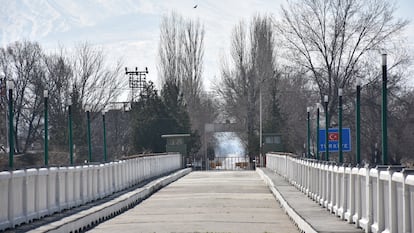
USSR 2.0, Trump’s deals, and other power struggles in the Caucasus
Armenia seeks to distance itself from Russian dominance in a regional context where multiple actors are vying to assert their influence

Armenia seeks to distance itself from Russian dominance in a regional context where multiple actors are vying to assert their influence
Druze on both sides are pressing the Jewish state to protect them from the Arab country’s new regime
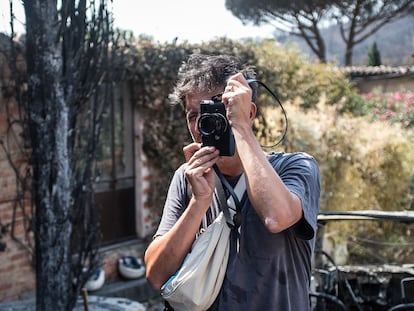
The photojournalist has covered wars in Iraq, Afghanistan, Syria, Libya and Sudan for more than 20 years

Defined as a shrewd and ambitious man, the leader of the Arab country has combined a firm hand with openness since bringing down the Assad regime
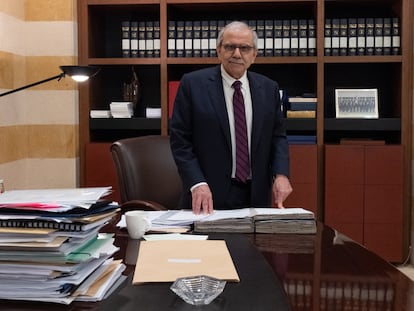
The new government in Beirut is seeking peace while trying to rebuild the state and the country’s economy
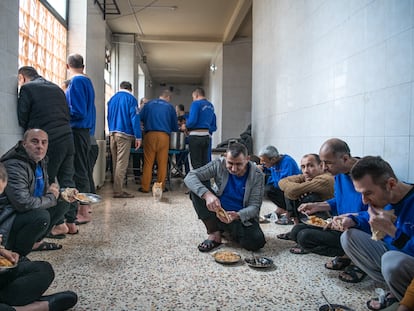
The country’s 17 million inhabitants, who have suffered through violence, displacement, poverty, a pandemic, and an earthquake, have only about 100 mental health professionals. Experts estimate that at least 10,000 are required
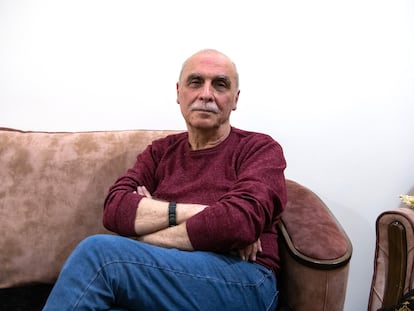
The longest-serving political prisoner under the regime is now revered as a hero. ‘I was always free here,’ he declares, tapping his temple
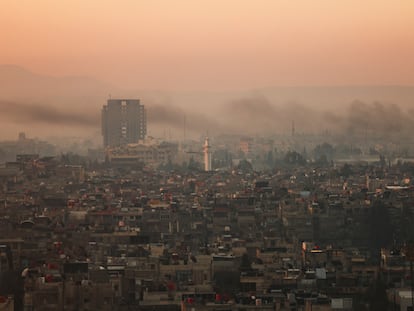
One month after the fall of Assad, pressure must be placed on the new authorities to prevent them from drifting towards Islamism
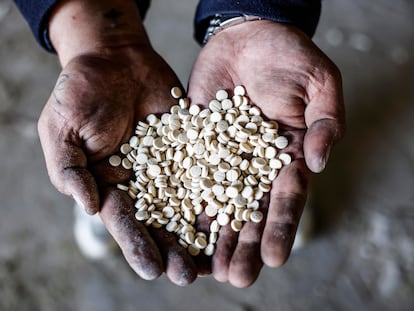
The fall of the regime brings to light the scheme by which Damascus produced 80% of this substance during the war. The rebel authorities are burning the pills, which they discovered in workshops and mansions during their lightning advance
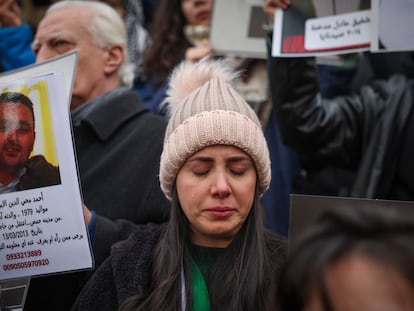
Activist Wafa Mustafa, whose father is one of more than 112,000 people who disappeared under the Assad regime, says peace will not come to the country until those responsible are held accountable
Residents of Syrian villages near the occupied Golan Heights, where the Israeli army has now advanced, report that the military even fires on the population

Police, soldiers, and army officers who served under the old regime are registering with the new authorities to demonstrate their renunciation of the dictatorship

The country’s industrial capital, a religious melting pot and a strategic crossroads, is trying to rise from the devastation with which the regime punished this opposition stronghold
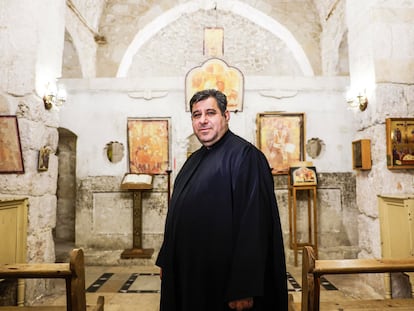
While there is cautious optimism among the communities in Aleppo, which have lived with HTS for longer, in the Damascus region there is wariness over the rise to power of an Islamist group, heir to the jihadism that attacked churches a decade ago

Residents of the main opposition stronghold in Damascus province, who have suffered from famine, chemical attacks, and brutal repression, are demanding punishment for the regime’s leaders
Authorities in the semi-autonomous Kurdish region warn that Ankara is preparing an offensive to occupy all the territory they control
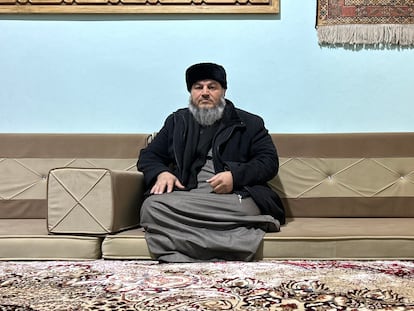
After distancing itself from Al Qaeda, the militia spent years trying out an administration in Idlib province that set it apart from other rebel factions and which it is now partially transferring to the rest of the country

Hope for the future prevails over uncertainty in the southern city a week after the fall of the regime: ‘I am finally going to lay down my weapons to return to university after a decade of war’
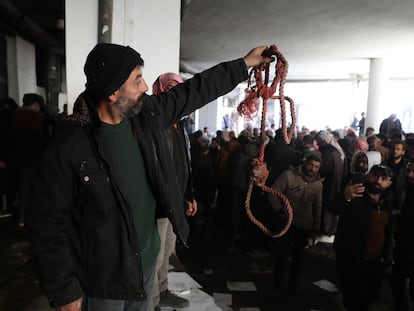
The Sednaya military prison is filled with desperate people seeking news of their loved ones, clinging to the rumor that thousands of prisoners remain in underground cells
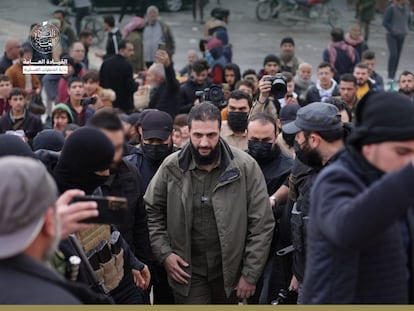
The Syrian National Council, the main opposition organization supported by Turkey, and Hay’at Tahrir al-Sham, the fundamentalist group leading the offensive, are the predominant actors on which a possible transition period will fall

Following the sudden fall of the bloodthirsty Syrian dictator, the priority must now be to avoid a power vacuum that leads to chaos

The weakening of Russia, Iran and Hezbollah has precipitated the downfall of the regime. The instability is spilling over into Iran, disrupting its nuclear plans, and into Yemen, near waters of great importance for trade
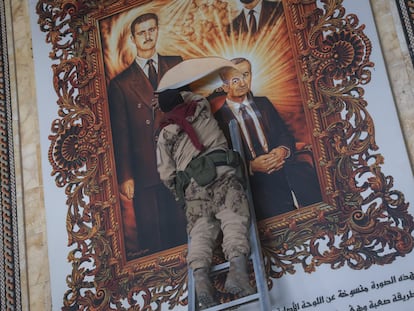
The lightning offensive succeeded at a moment when Assad was widely regarded as the virtual victor of the war, had been reinstated in the Arab League, and Italy was actively exploring plans to facilitate the return of refugees to Syria
In cities like Qamishli and Al-Hasakah in the northeast, thousands of people are taking to the streets to celebrate the fall of Bashar al-Assad, though not without fear about the future of the country

An operation led by HTS, with roots in Al Qaeda, and rebels allied to Turkey have made their move on the Syrian chessboard in the face of the ineffectiveness of the regime and its allies

The weakening of the Damascus dictator’s allies, Russia, Iran, and Hezbollah, together with the coincidence of the truce between Israel and the Lebanese militia and the transition in Washington, explain the lightning offensive of the Syrian rebels

The war, which has killed nearly half a million people and displaced half the country’s pre-war population of of 23 million, began as peaceful protests against Bashar Assad’s government in March 2011